When I met Peter Underwood for lunch early in June last year, he was enthusiastic about the prospect of presiding over one of the trials at the Tasmanian Advocacy Convention.
He also offered to host a reception at Government House for the Convention delegates.
Although he had been a distinguished and tireless Governor for 6 years, I think he missed being a judge.
He had been an outstanding advocate himself. His wife Frances said he had an ability, as a cross-examiner, to see into peoples’ souls. As a judge for nearly 24 years he could certainly see into the souls of counsel. Unprepared advocates could expect a demolition. Otherwise, one could learn a tremendous amount from appearing before Justice Underwood.
But as a lawyer, Governor Underwood loved teaching more than anything else. Hugh Murray, the head of the legal practice course said, “Few men in his position would have taken the time, as he did, to give advocacy training to our students. He often 'sat' as a judge in their Supreme Court exercises, and his method of instruction was very effective, and very much appreciated by the students."
He was also a great promoter of women lawyers.
So we decided, with Mrs Underwood’s kind permission, to inaugurate the Peter Underwood Advocacy Award. It was for the student who was judged by the trainers in the trial to have made best use of the skills learned on the course. It is intended to be a perpetual award.
The Convention took place at the Federal Court between the 4th and 6th of December and 35 lawyers signed up. There were practitioners from all branches of the profession; from Canberra and the Northern Territory and different parts of Tasmania. It was really good to see quite a few Legal Aid lawyers and prosecutors from the DPP’s office.
It was organised by CPD Training (UK) and promoted and arranged by Francesca Saturno and her staff.
The educational emphasis was on achieving individual and team learning in a safe environment. There was correctional but positive feedback from the trainers. Substantial preparation was necessary but so it is for any trial.
Each student received a private coaching session from the acclaimed presentation skills coach, Marsha Hunter. One said that Marsha had “some excellent suggestions for combatting nerves.”
The delegates learned some new techniques for case analysis, examination-in-chief and cross-examination. People were enthralled by U.S. Judge Mark Drummond’s presentation on visual evidence and U.K. Judge Simon Brown’s innovative lecture on trial speeches.
Justice Stephen Estcourt delivered a stimulating masterclass on ethical advocacy. Leigh Sealy spoke eloquently on how to make effective legal submissions.
It was gratifying to see the Convention being supported by so many senior practitioners.
Local counsel, including the Solicitor General, Michael O’Farrell S.C.; Greg Melick S.C.; Peter Dixon, David Barclay and Greg Geason contributed with neat advocacy tips and the benefit of their long experience.
The 8 trials, run on the Saturday, were presided over by Justice Kerr, Chief Justice Blow, Justice Estcourt, Judges Drummond and Brown; Chief Magistrate Hill and Magistrate Rheinberger.
As a tribute to the quality of persuasion, or is to the lottery of litigation, the judges came up with different decisions.
But what did the students think of it?
One said, “I found it brilliant as a younger lawyer to have someone explain exactly how to go about certain tasks. The teaching faculty were amazing: never was I bored nor did I stop listening.”
Another said: “The Tasmanian 2014 Advocacy Convention has been the best training that I have attended. The presenters were all extremely passionate about advocacy, and I learned a great deal from each of them.”
A third spoke to future students saying “I would like to encourage those who chose not to attend through fear of the unknown to attend next time. There is nothing to fear because of the spirit in which everything is done.”
It was not just the students who enjoyed the Convention. The team of international trainers had been before in 2012. They love Tasmania. Judge Mark Drummond, who brought his delightful wife Carol, is a particular fan of Hobart’s restaurants. Judge Brown made discerning but expensive contributions to Tasmania’s retail sector.
The Convention dinner, a lively but happy affair, was held at the Astor Grill. CPD Training’s Stephen Dixon performed magic tricks for the guests.
Chief Justice Blow, in suggesting that people attend the Convention, had written: “Regular advocacy training is very important for lawyers who practise in the courts, but it is important for others too. It ensures better representation for their clients. And, from my point of view, well trained advocates are of great assistance to the courts.”
As acting Governor, the Chief Justice honoured Governor Underwood’s commitment to hold the Government House reception. It was a special occasion and we are grateful to the Government House staff for their stylish efficiency.
Peter Underwood’s spirit was with us all week.
At our lunch, I told him that, for the trial, I had written a new case study based on the Government’s fictitious proposal to construct a high-speed rail link from Launceston and Hobart airport using a tunnel under the Domain. The Governor was relieved when he heard that the building works were a good kilometre from the Botanical Gardens.
His Excellency would also have been pleased to know that the Peter Underwood Advocacy Award went to a young woman practitioner: Jessica Wade from the Office of the DPP.
The Award will be displayed in the Law Society.
If you have any questions or suggestions, I should be happy to hear from you.
peter.lyons@cpdtraining.net
